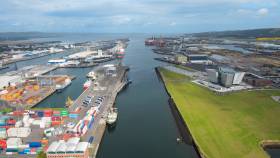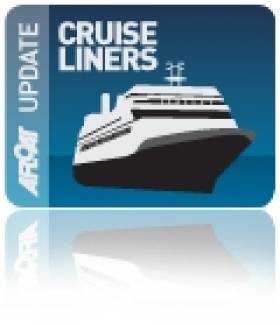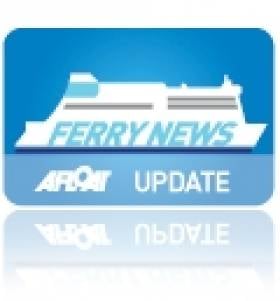Displaying items by tag: captain
Captain Fined in Belfast Port for Being 'Drunk'
#BelfastLough - A 'drunk' captain found in charge of his ship at Belfast Port on Boxing Day has been fined £1,000.
The Irish News writes that Patryk Tetzlaff (38) was four times over the limit while in charge of a vessel carrying out refuelling duties at other ships.
He is now expected to be repatriated to his native Poland, where he may face further sanctions from his professional body.
Belfast Magistrates' Court heard Harbour Police were called in amid concerns over Tetzlaff's state.
His boat had been refuelling a ferry docked at the port.
During a breath test he admitted having taken half a bottle of vodka, prosecutors said.
Tetzlaff, of no fixed address, admitted a charge of having excess alcohol while on duty as professional master of a ship.
A defence solicitor argued that the captain was not drinking during manoeuvres.
To read more click the link here.
Costa Concordia Captain Offers Plea Deal
#CruiseLiners - Lawyers for the captain of the cruise liner that capsized off the west coast of Italy early last year have requested a plea deal in the trial over his role in the disaster.
According to RTÉ News, Francesco Schettino faces charges of manslaughter and causing the loss of his ship after the Costa Concordia ran around in shallow waters off Isola del Giglio on the night of 13 January 2012.
Some 32 people died in the ensuing disaster, and more than 4,000 passengers and crew - including an Irish couple - were hurriedly evacuated from the vessel.
A lawyer for Schettino, whose trial began on 9 July, told the press that he would offer to plead guilty in exchange for a sentence of three years and five months - following the rejection of a previous offer of three years and four months.
His legal team argue that he was not solely to blame for the disaster, and point to plea deals made by five others officials with liner operator Costa Cruises, which also agreed to pay a €1 million fine to settle criminal charges.
However, the prosecution has blasted Schettino's plea bargain proposal as "absolutely inadequate".
The crew of the Costa Concordia was last year presented with the prestigious Lloyd's Lost Seafarer of the Year award for their "courage and professionalism" in response to the disaster.
#FERRY NEWS - The captain of the cargo ship Union Moon, who was arrested after his vessel collided with a passenger ferry in Belfast Lough, has been charged with 'excess alcohol by the master of a ship'.
BBC News reports that the 55-year-old was set to appear in court today, following his arrest yesterday.
No one was injured in the incident on Wednesday, when the Union Moon collided with the Stena Feronia close to the Fairway buoy between Carrickfergus and Helen's Bay. Both vessels were substantially damaged.
The cargo ship, which was carrying 2,000 tonnes of aggregate, was brought back to Belfast. Philip McNamara of the Donaghdee lifeboat confirmed that a large section of her bow was missing.
Meanwhile, engineers from Stena Irish Sea are assessing the damage to their vessel to determine how long it will be out of service. The Stena Feronia sails the route from Belfast to Birkenhead in Merseyside.
The Maritime and Coastguard Agency, the Marine Accident Investigation Branch and the PSNI are all involved in the investigation.
BBC News has more on the story HERE.
- Ferry news
- collision
- Belfast Lough
- cargo ship
- Union Moon
- captain
- charged
- drink
- excess alcohol
- ferry
- Stena Feronia
- Birkenhead
- Merseyside
- court
- Fairway buoy
- Carrickfergus
- Helen's Bay
- Philip McNamara
- Donaghdee
- Lifeboat
- Stena Irish Sea
- Maritime and Coastguard Agency
- Marine Accident Investigation Branch
- psni
Irish Couple Speak of 'Titanic' Experience on Capsized Cruise Liner
#NEWS UPDATE - The Irish couple rescued from the stricken cruise liner off the Italian coast have spoken of their joy to be back home safe and sound.
Séamus Moore (52) and his wife Carol (50) from Clonmel were greeted by their three children at Dublin Airport yesterday, just two days after the Costa Concordia struck a sandbank and capsized off Tuscany.
“It was a difficult experience but at the end of the day it worked out very well for most people," Carol told The Irish Times. "It’s really, really a relief to be home.”
Commenting on the events of Friday night, Séamus likened their experiences on the sinking cruise ship to the film Titanic.
“When we were sitting on the side of the ship I said to her ‘now we know what Leonardo DiCaprio and Kate Winslett felt like’ and she said ‘well at least Kate lived’."
As the boat listed, it also struck Séamus that while "everything was crashing one way, then the next, the one thing I did notice is that the piano player kept playing."
The couple were removed from the ship by lifeboat in the early hours of Saturday and looked after by the staff at the Irish Embassy in Rome before their return.
They were among some 4,000 passengers on the cruise ship, most of whom were rescued within hours of the incident. Six people are confirmed dead following the disaster, with more than 60 injured and 16 people still missing.
The captain of the 114,500-tonne vessel was arrested on Saturday accused of manslaughter and of abandoning ship before all passengers and crew had been evaculated.
The Irish Times has more on the story HERE.
































































